”Biotechnology for economic and societal development in Southern and Eastern Europe”: ICGEB scientific event
- 652 просмотра
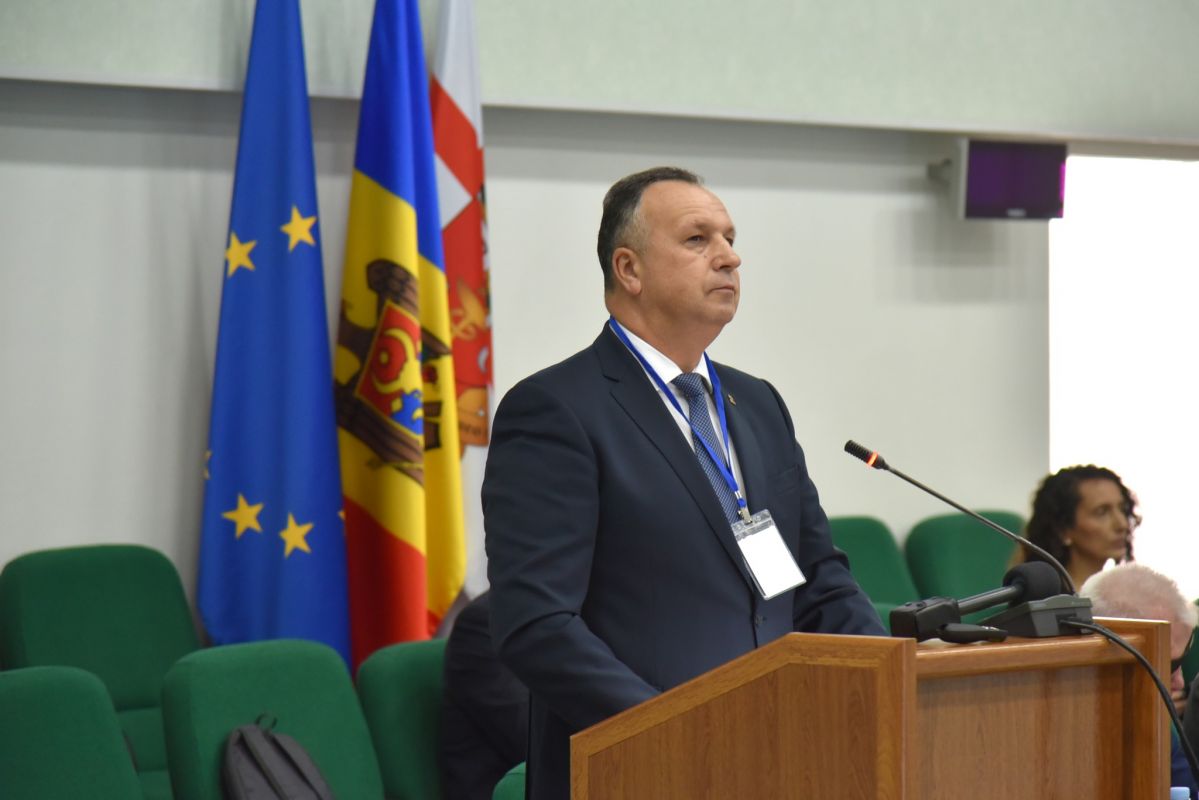
Today, September 29, the inauguration of the scientific event ICGEB & The Future of Science took place under the generic title "Biotechnology for economic & societal development in Southern and Eastern Europe" . The event is organized and hosted by Nicolae Testemitanu State University of Medicine and Pharmacy of the Republic of Moldova on behalf of the International Centre for Genetic Engineering and Biotechnology (ICGEB) from Trieste, Italy. It is part of the ICGEB Meetings and Courses Programme, which involves an interdisciplinary approach to topics in the field of biotechnology and scientific communication, and brought together experts and researchers from 15 countries.
The rector of Nicolae Testemitanu University, professor Emil Ceban, mentioned that for our university it was an honor to host, for the first time, such a major international scientific event under the aegis of ICGEB, where two sustainable development strategies extremely important for the field of research in the Republic of Moldova, but also for economic and social development, in general, were presented. "It's about biotechnology and scientific communication. As it is well known, biotechnology uses living organisms or their derivatives to create or modify products or processes useful in everyday life. Today, many of the things that surround us are obtained through biotechnological processes, which aim to improve people's lives", noted the rector.
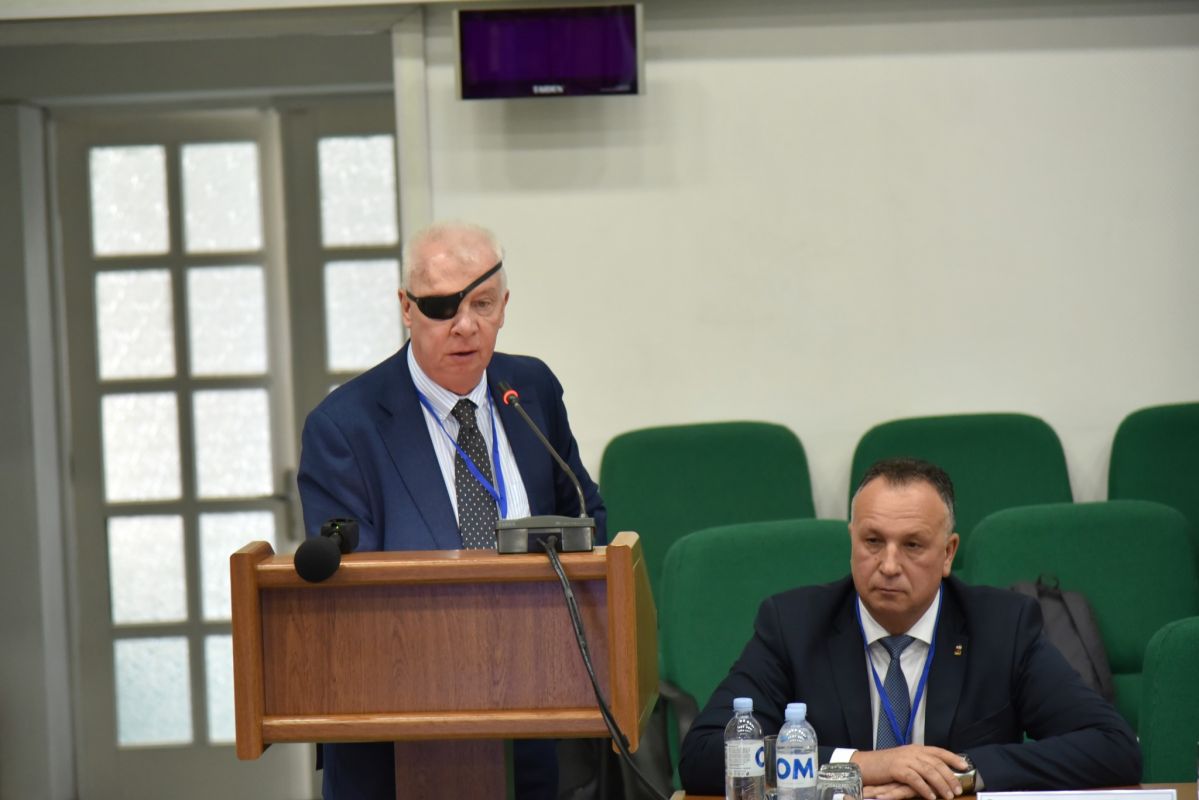 For his part, Dr. Lawrence Banks, ICGEB Director-General, emphasized the fruitful collaboration with Nicolae Testemitanu University and the achievements of the Republic of Moldova obtained as a member state of ICGEB in a very short period of time. The expert spoke about achieving sustainable development goals, promoting technology transfer, excellence in research in order to contribute concretely to the development of genetic engineering and biotechnology, especially in developing countries. "Biotechnology can provide practical and sustainable solutions for the diagnosis and treatment of human diseases," the ICGEB Director-General pointed out.
For his part, Dr. Lawrence Banks, ICGEB Director-General, emphasized the fruitful collaboration with Nicolae Testemitanu University and the achievements of the Republic of Moldova obtained as a member state of ICGEB in a very short period of time. The expert spoke about achieving sustainable development goals, promoting technology transfer, excellence in research in order to contribute concretely to the development of genetic engineering and biotechnology, especially in developing countries. "Biotechnology can provide practical and sustainable solutions for the diagnosis and treatment of human diseases," the ICGEB Director-General pointed out.
Professor Adrian Belîi, Vice-Chair of the Parliamentary Commission for Social Protection, Health and Family, underlined that "contemporary research is mainly based on biotechnology, communication and information technology. The presence at this event of European ambassadors, of ICGEB partners, who together with Nicolae Testemitanu University will implement this project, is a proof of sustainability as regards the course of the Republic of Moldova towards development and towards Europe".
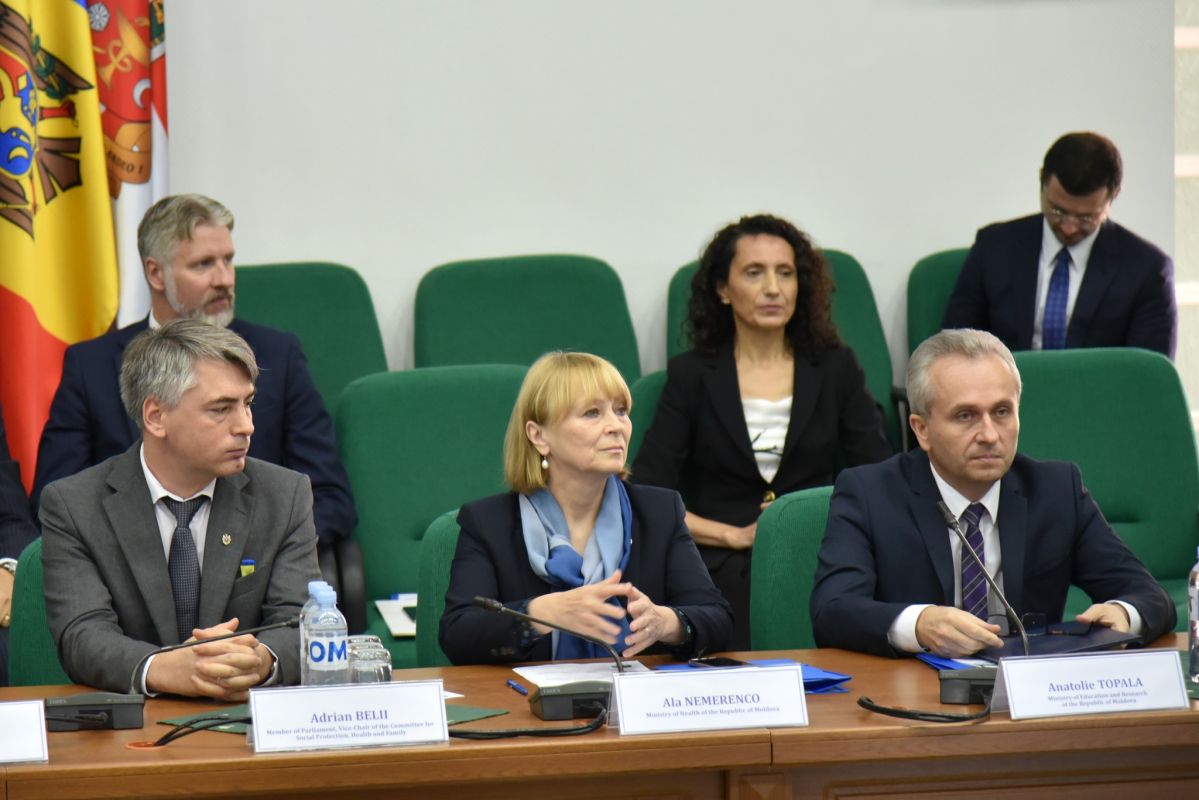 Minister of Health Ala Nemerenco congratulated Alma Mater for the fact that it managed to offer the Republic of Moldova the status of ICGEB member, an important organization at the international level, but also for the fact that a regional research centre will be created in our country. "Molecular virology, genome, sequencing, bioengineering or biotechnology have become customary words for medical specialists. We are very interested as a ministry in working with the molecular virology group to have an enhanced control of infections. Since the Republic of Moldova has a modern sequencer, offered by the EU, we will readily make it available to the research field, including for the implementation of these projects. I want to highlight that our country has intellectual capabilities which deserve to be part of research projects”, mentioned the official.
Minister of Health Ala Nemerenco congratulated Alma Mater for the fact that it managed to offer the Republic of Moldova the status of ICGEB member, an important organization at the international level, but also for the fact that a regional research centre will be created in our country. "Molecular virology, genome, sequencing, bioengineering or biotechnology have become customary words for medical specialists. We are very interested as a ministry in working with the molecular virology group to have an enhanced control of infections. Since the Republic of Moldova has a modern sequencer, offered by the EU, we will readily make it available to the research field, including for the implementation of these projects. I want to highlight that our country has intellectual capabilities which deserve to be part of research projects”, mentioned the official.
According to Minister of Education and Research Anatolie Topală, investments in education and research represent investments in the future. "Attracting young people to the world of science and innovation and encouraging them to pursue a career in this field is one of the ministry’s major concerns. These goals can be achieved by providing financial support to the research sector, modernizing research laboratories and facilitating access to infrastructure in European states, developing digital libraries and raising the prestige of scientists in contemporary society, as well as the awareness that their major task is to contribute to the prosperity and sustainable development of society through research and innovation. It is important that our country join such sustainable development projects, this is one of our common objectives, thus providing the necessary qualified scientific potential for the state,” concluded the official.
The representative of the World Health Organization (WHO) in the Republic of Moldova, Dr. Miljana Grbic, welcomed the initiative of the ICGEB to select our country as a reference centre for research in South-Eastern Europe, emphasizing the fact that the action plan in the field of biotechnology established by ICGEB in partnership with Nicolae Testemitanu University has a promising course. "WHO supports priority projects that bring added value to public health, especially the strengthening of scientific research capacities, technology transfer, etc.," stressed the WHO representative.
"ICGEB is a centre of excellence in the field of scientific research in Italy and throughout the world, being engaged in an exchange of knowledge and experience for several years with the Republic of Moldova. The positive results of this collaboration will certainly influence the activity of both parties involved", said Lorenzo Tomassoni, the Ambassador of Italy to the Republic of Moldova. The Italian diplomat assured that he will support and contribute to the development of this cooperation, because the Republic of Moldova is a great country, which recently obtained the status of a candidate to the EU and has multiple possibilities for a very successful future.
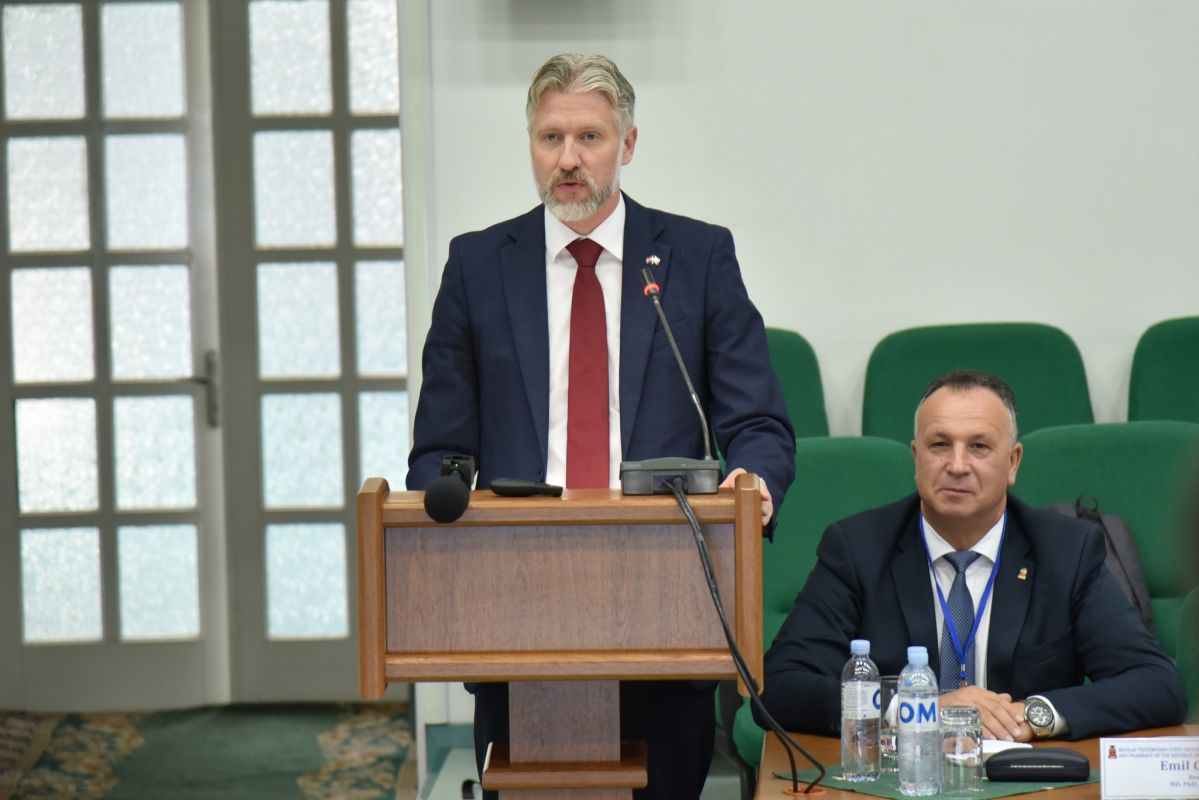 According to the Ambassador of Latvia to the Republic of Moldova, Uldis Mikuts, one of the key elements for the development of science is a successful, ever-improving international partnership, examples of cooperation between our countries under the European program Horizon 2020, on 13 joint projects, being listed. Only in the area of joint publications of specialists from Latvia and the Republic of Moldova, 56 works can be mentioned, most of them in the field of medicine. "The collaboration agreement between Nicolae Testemitanu University and the Latvian Biomedical Research and Study Centre is the latest progress aimed at promoting and strengthening the partnership between our countries, especially since the first results are already visible after the meeting of experts from both states and the exchange of ideas that took place, the creation of the Biobank according to the Latvian model being an eloquent example". Another key element, according to the Latvian diplomat, is the access to and integration into regional organizations, such as ICGEB, while the granted EU candidate status opens up greater prospects in terms of developing science in the future and launching new projects, and Latvia is always ready to share its experience in this context.
According to the Ambassador of Latvia to the Republic of Moldova, Uldis Mikuts, one of the key elements for the development of science is a successful, ever-improving international partnership, examples of cooperation between our countries under the European program Horizon 2020, on 13 joint projects, being listed. Only in the area of joint publications of specialists from Latvia and the Republic of Moldova, 56 works can be mentioned, most of them in the field of medicine. "The collaboration agreement between Nicolae Testemitanu University and the Latvian Biomedical Research and Study Centre is the latest progress aimed at promoting and strengthening the partnership between our countries, especially since the first results are already visible after the meeting of experts from both states and the exchange of ideas that took place, the creation of the Biobank according to the Latvian model being an eloquent example". Another key element, according to the Latvian diplomat, is the access to and integration into regional organizations, such as ICGEB, while the granted EU candidate status opens up greater prospects in terms of developing science in the future and launching new projects, and Latvia is always ready to share its experience in this context.
Academician Stanislav Groppa, the moderator of the event, expressed his gratitude to Dr. Lawrence Banks, Director-General of ICGEB, for openness and for promoting inter-institutional collaboration, as well as for the substantial support provided to the University in the establishment of the Biomedical and Health Research Centre, which will serve as a Regional Research Centre.
According to the program, the event included six scientific sessions, moderated by international and national speakers, on the following topics: biotechnology for sustainable development; the role of biotechnology in economic and social development, science and politics; science communication tools and practices; change implementation for responsible research and innovation; scientific communication as a social responsibility etc.
The works of the reunion ended with two workshops, attended by a mixed target audience, made up of researchers and journalists, where case studies on digital science communication and social media, science communication and public engagement, were presented.
Participants were guided, through discussions and interactive group activities, how to develop public engagement messages and plans on social networks. Acting as journalists during improvised interviews they had the opportunity to deepen their knowledge of how the media work.
The event was a premiere for the scientific community of the Republic of Moldova and brought together about 200 participants – experts and researchers from 15 countries, such us Austria, Italy, France, Slovenia, Latvia, Lithuania, Romania, Serbia, Georgia, Montenegro, South Africa, India, Iraq, Pakistan and the Republic of Moldova.
Preluarea informației de pe site-ul USMF „Nicolae Testemițanu” poate fi efectuată doar cu indicarea obligatorie a sursei și a linkului direct accesat pe www.usmf.md.

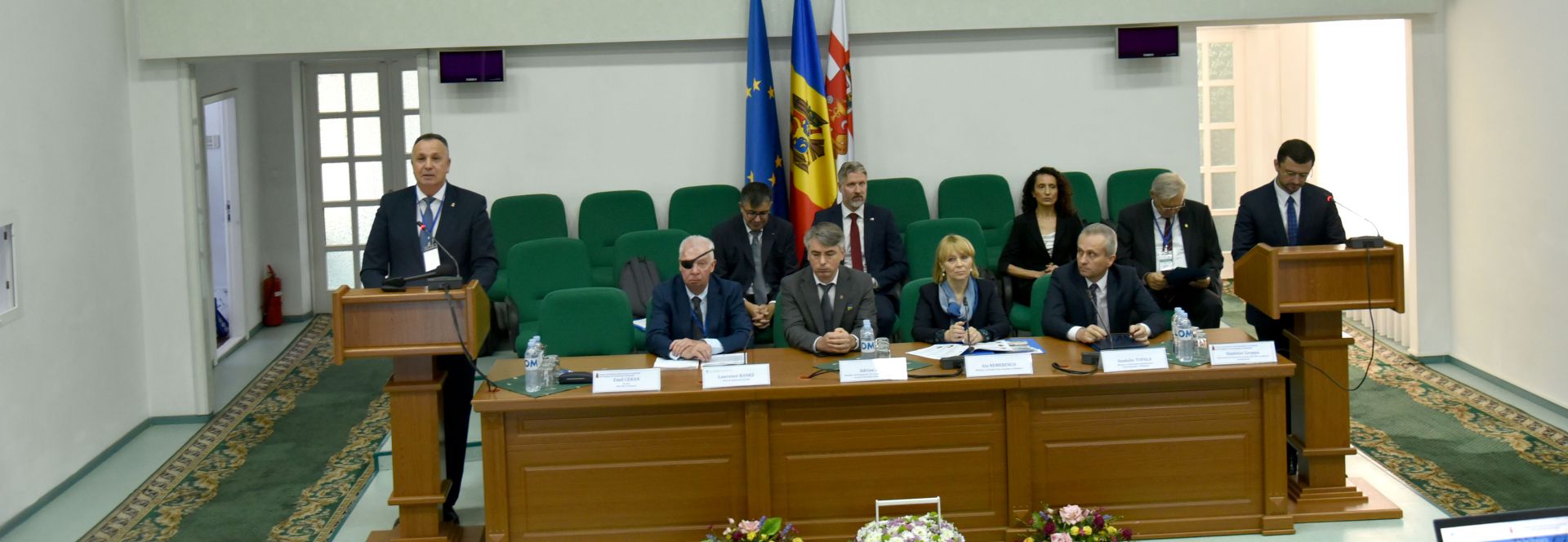
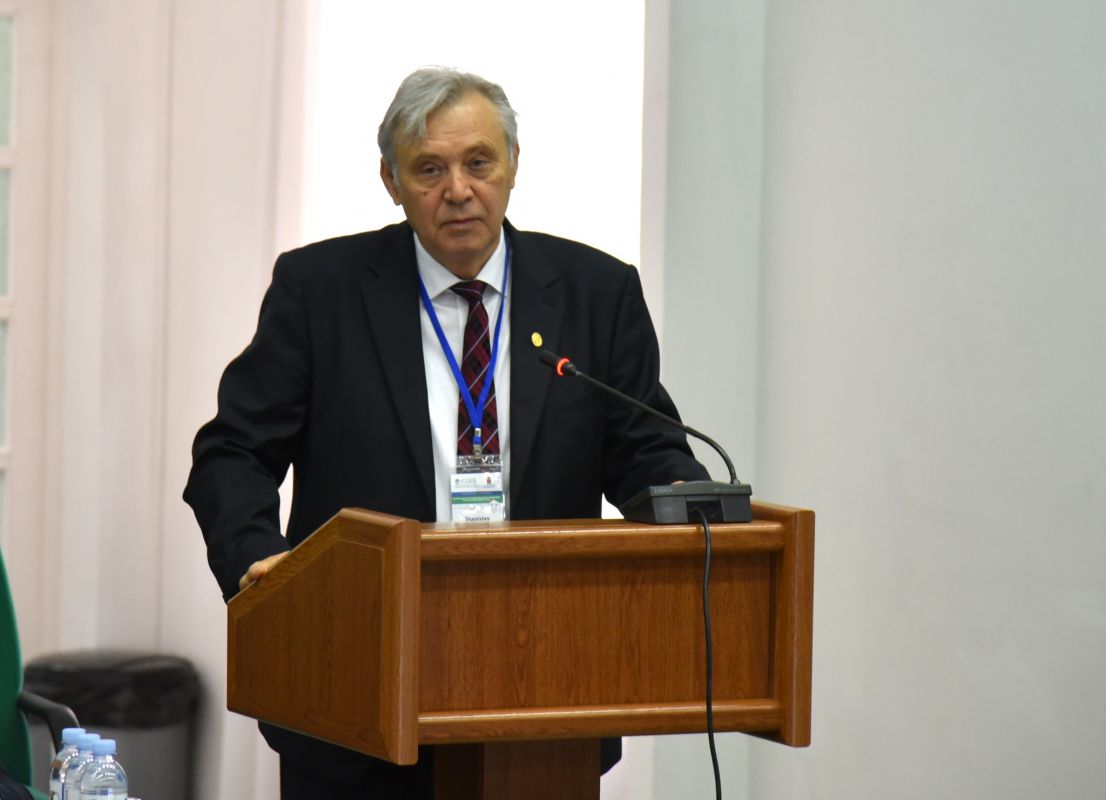
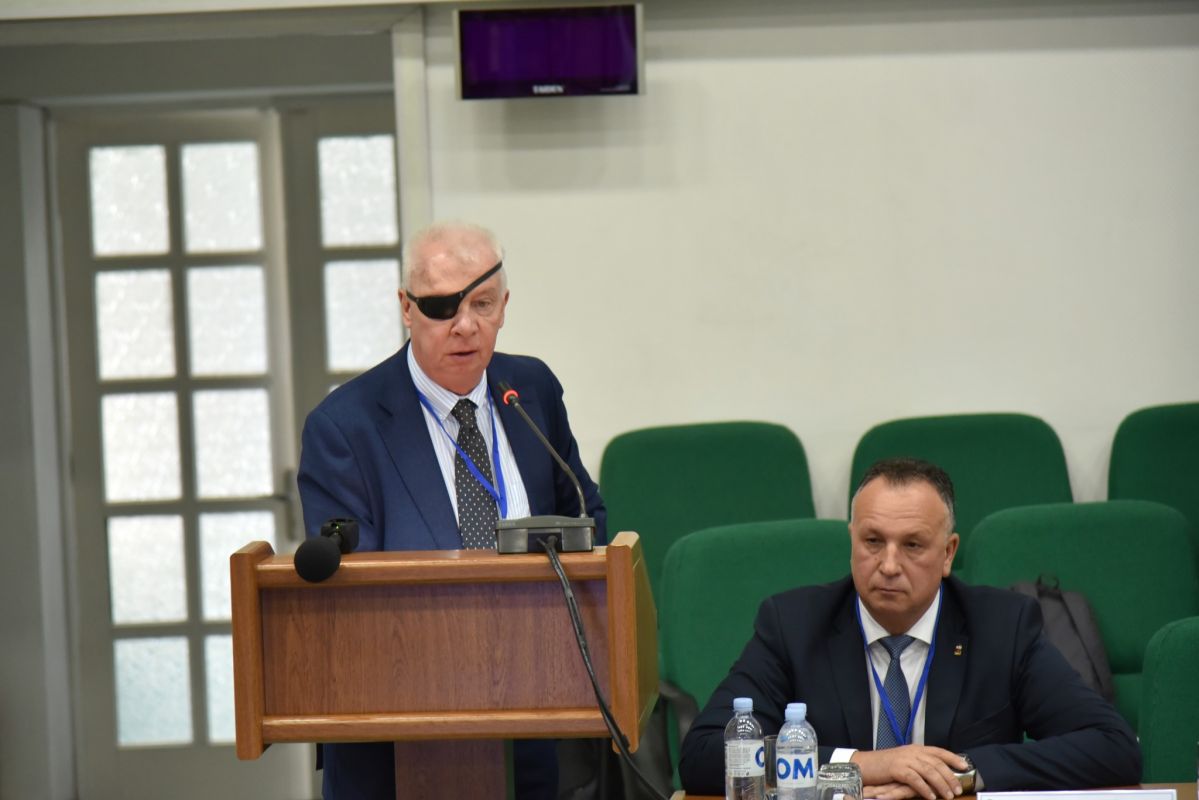
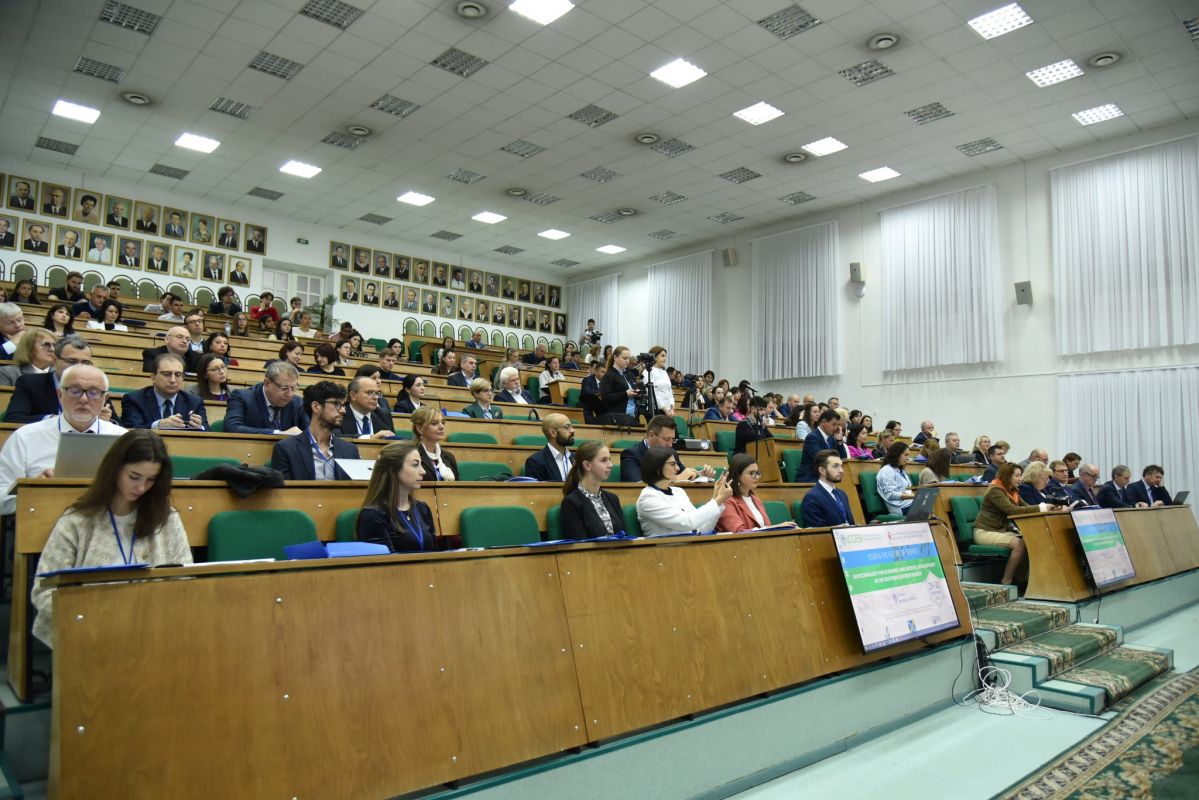
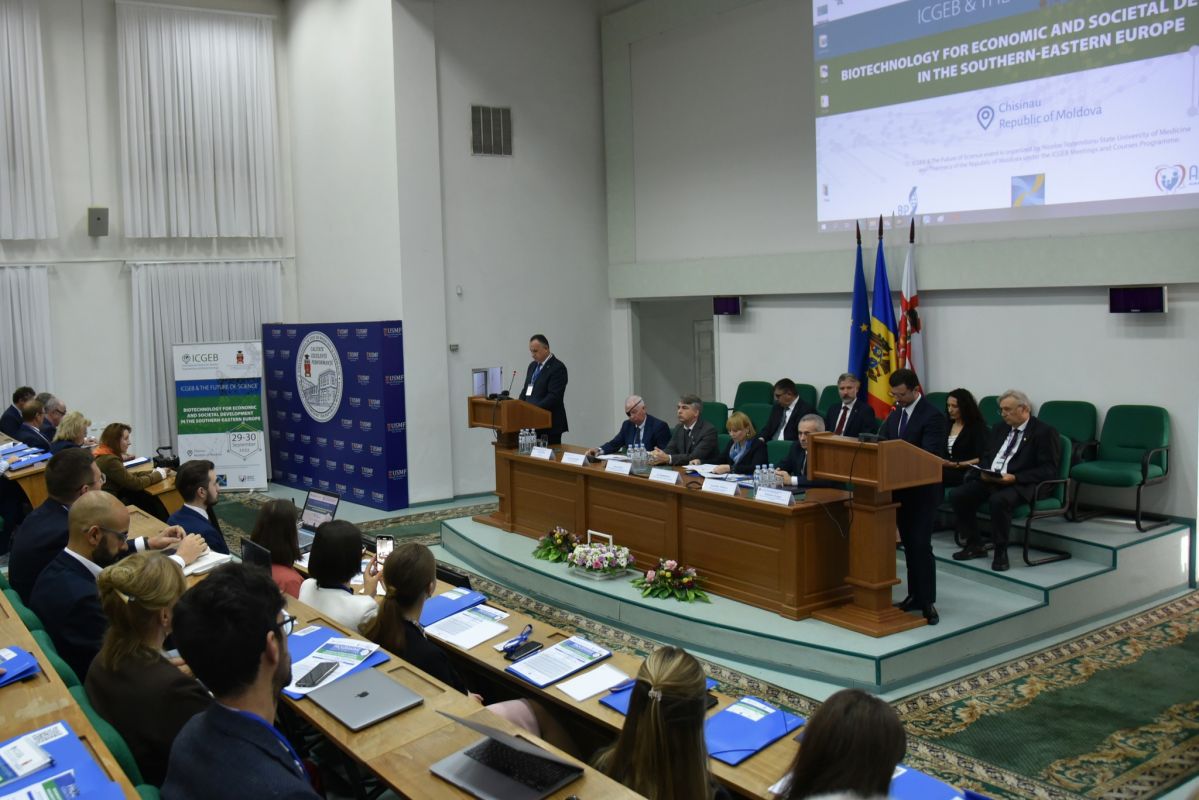
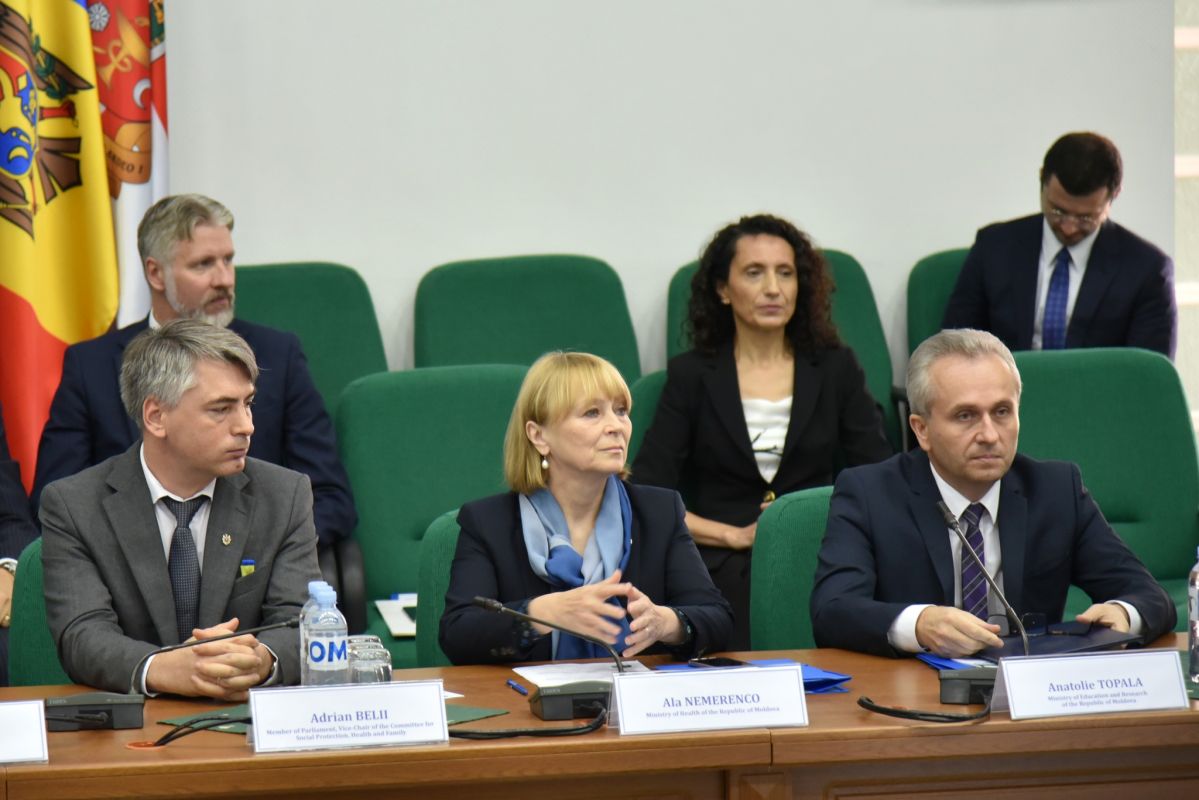
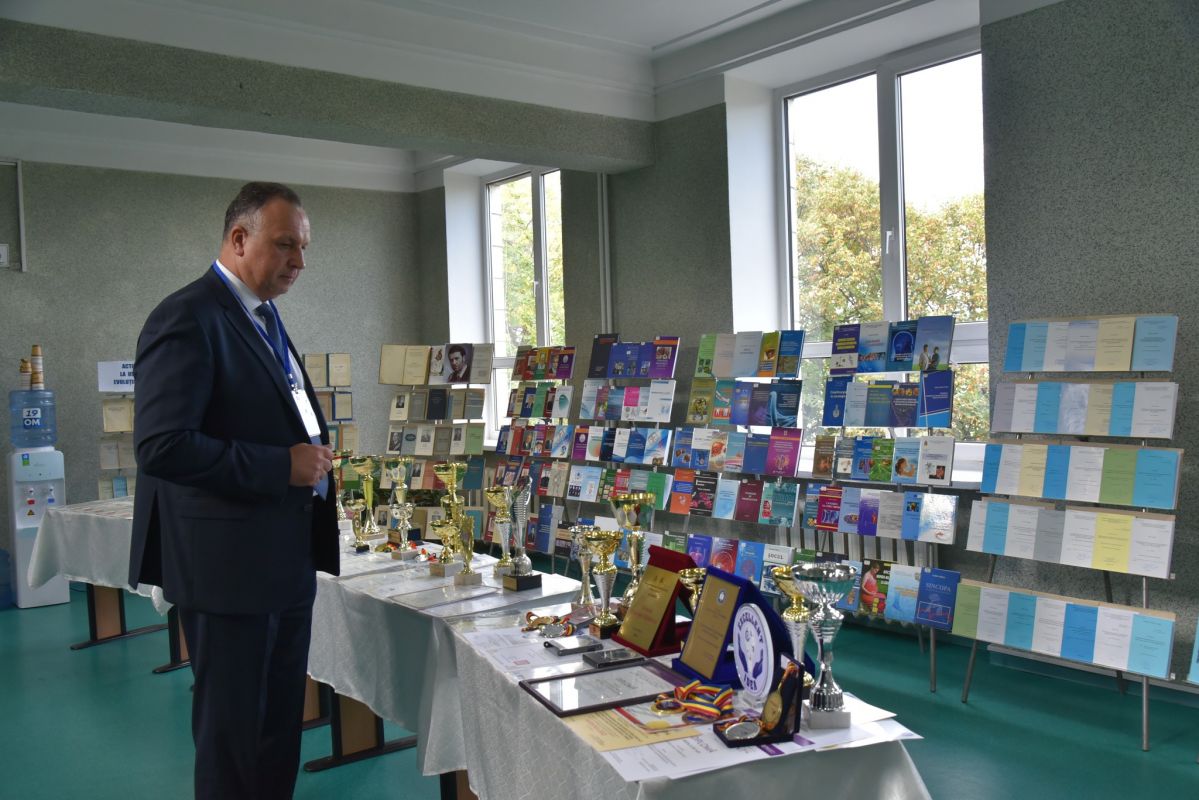
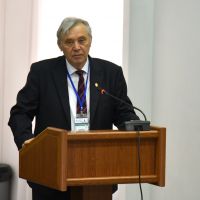
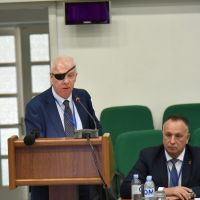
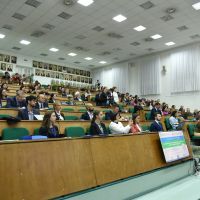
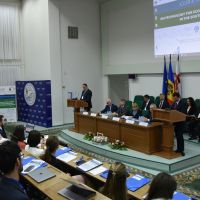
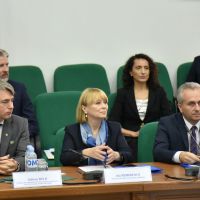
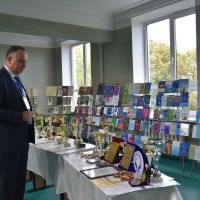
Comentarii